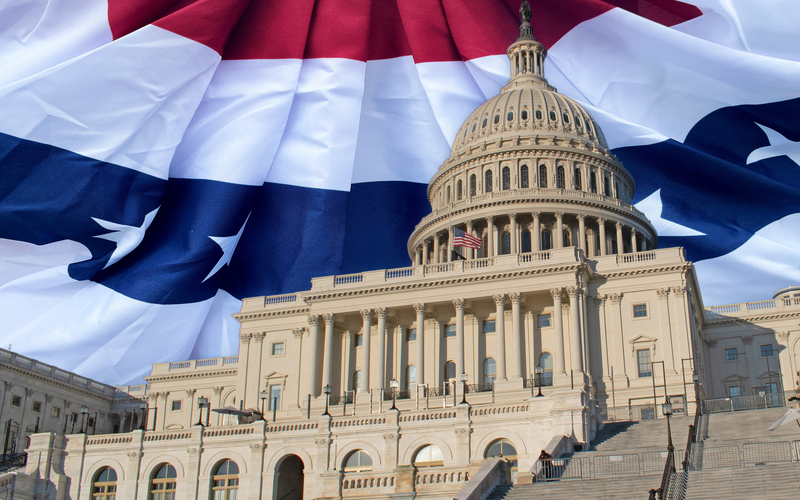From Cooperation to Adversary in Two Months
Sign up for a six month free
trial of The Stand Magazine!
A barrage of events, dating back to former FBI Director J. Edgar Hoover, the COINTELPRO scandal, the Russian Collusion hoax, FISA Court abuse—illegally spying on private American citizens and even into former President Trump’s White House, has burgeoned into a palpable distrust of federal agencies by the American people. This list is by no means exhaustive. It’s merely a snapshot of events that have crescendoed into broad-based national distrust. If the Department of Justice (DOJ) had any interest in bolstering public confidence in its investigation and raid of former President Trump’s Mar-a-Lago estate, it would voluntarily release the affidavit to the public providing its factual basis and legal rationale for the raid, even if lightly redacted, instead of fighting tooth and nail in court to keep it sealed from public view. Considering the unprecedented nature of this case – a former president who is likely to be a primary electoral opponent to the current Oval Office occupant who had his private residence raided in a criminal investigation – public release is the only way forward.
To date, the search warrant and evidence receipt have been released publicly. Those items alone, however, will not suffice in this case. A search warrant is a very brief document, bearing a judge’s signature, that gives the law enforcement entity lawful permission to execute a specific search at a specific time in a specific location. The search warrant return or evidence receipt is the itemized document that details what is retrieved by law enforcement pursuant to the warranted search. Those items do not include the factual basis that drove the DOJ to appeal to the court for permission to search former President Trump’s home.
Particularly, the American public should be apprised as to what specifically transpired that moved Mr. Trump in the DOJ’s view from being a cooperative private American citizen to an adversary of the federal government whose home must be immediately raided while he’s over a thousand miles away. The raid was purportedly conducted due to President Trump’s possession of classified documents in his home in violation of the Presidential and Federal Records Act Amendments as described in U.S. Code Title 18, Section 2071. However, National Archives and Records Administration (NARA) Archivist David Ferriero explained in a letter to Congress dated February 18, 2022 that former President Trump had “ongoing communications” with NARA “throughout 2021.” Those communications culminated in the former president voluntarily transferring “15 boxes to NARA in January 2022.”
We also know that two months before his home was raided, Mr. Trump secretly received a grand jury subpoena for additional documents. When a DOJ National Security Division prosecutor and three FBI agents showed up at Mar-a-Lago on June 3, 2022, they were surprised when they were personally greeted by the former president who turned over a small number of documents to them compliant with the subpoena. This cooperation included Mr. Trump’s team voluntarily surrendering responsive documents, security surveillance footage, and allowing the aforementioned FBI agents and senior DOJ lawyer to tour his private storage locker. Five days later, DOJ officials sent a letter to former President Trump’s lawyers asking them to secure the private storage locker with more than the lock they had seen. The Secret Service then, pursuant to collegial instruction from the DOJ, installed a more robust lock.
If this information is true, what moved the DOJ from cordial interactions with the former president in June to a full-blown Florida home raid while he’s over a thousand miles away? If a subpoena was employed two months prior and it was met with a personal reception and home tour for DOJ personnel by Mr. Trump himself, why would things quickly become adversarial? More importantly, the American people need to know whether this history of sustained cooperation was included in the application for the search warrant by the DOJ.
If the magistrate granted the search warrant based on a DOJ application that conveniently excluded the factual history of sustained cooperation by former President Trump it would most likely have been unlawfully obtained. The DOJ would have misled the court. This is the exact same scenario that was eventually exposed in the Russian collusion hoax and FISA court scandal. The DOJ conveniently excluded from its application for warranted spying on candidate Trump and later President Trump that the basis of its “evidence” was a fraudulent dossier, which we now know to be completely fabricated, that was paid for by Mr. Trump’s political rival: “she who shall never be president.” They intentionally excluded that information because they knew their hope of getting legal sanction to cover their political mission would have been over. So, they lied to the court by omitting this obviously pertinent factual information that cut against their agenda.
When judges review search warrant applications their review is confined to the “four corners” of the affidavit presented to them. Information other than what is contained in the affidavit may not be considered by the judge. So, the law requires warrant applications to include factual information and evidence, including the evidentiary context to assess the probability that a crime was committed.
If the warrant affidavit in this case does not include the history of former president Trump’s sustained cooperation with NARA and the DOJ as well as what factually transpired that turned their interactions adversarial, that warrant will likely be determined to be illegally obtained. If that happens, the warrant will be suppressed (that’s the legal terminology) and any evidence secured as a result of the illegally obtained warrant will be excluded from any criminal proceedings. Could that be why the DOJ is opposing the publication of the affidavit? Also, if the evidence is unusable in an official criminal proceeding the only purpose for the grandiose raid would be political. The American people are right to wonder whether we are once again witnessing the weaponization of the U.S. Department of Justice for political purposes.
To be sure, the affidavit only tells the DOJ’s side of the story. It would include their recitations of the facts that warrant (pun intended) a search of a former president’s home though the fourth amendment to the U.S. Constitution states,
The right of the people to be secure in their persons, houses, papers, and effects, against unreasonable searches and seizures, shall not be violated, and no warrant shall issue, but upon probable cause, supported by Oath or affirmation…
If they were interested in the public’s confidence in their work, in light of the unprecedented nature of this case, the DOJ would voluntarily show the American people exactly why the home raid was necessary. The showing would include, among other things, a description of exactly what happened that made cordial interaction a no longer viable option. That is, of course, if justice is the intended goal. As it stands, the presiding judge has formally rejected the DOJ’s plea to keep the affidavit from public view. We’re going to learn more than we know now. My concern, beyond the particularities of this case, is that we are witnessing the continued co-opting and utilization of the federal government apparatus for political objectives akin to what we see in communist China and Russia.

Sign up for a free six-month trial of
The Stand Magazine!
Sign up for free to receive notable blogs delivered to your email weekly.



















